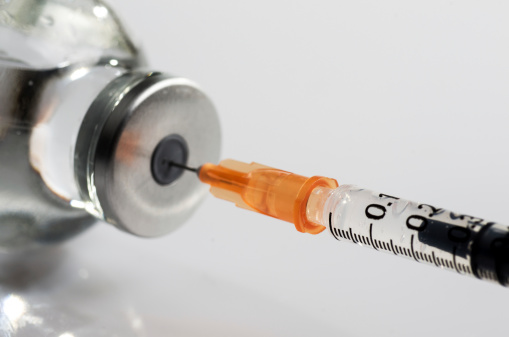In June, a U.S. Food and Drug Administration (FDA) advisory committee overwhelmingly recommended approval of two new drugs for cholesterol lowering, alirocumab (brand name Praluent, manufactured by Sanofi-Aventis) and evolocumab (Repatha, manufactured by Amgen). A final FDA decision is still pending, but is expected to take into account the advisory committee’s recommendation and should come later this summer. 
These new drugs work in a completely different manner than the statins that many of us are familiar with (or are taking). Some people have a great response to statins, while others, especially those who have had heart attacks, need more medication to more significantly lower their cholesterol. Those with a genetic predisposition to high cholesterol (clinically known as homozygous or heterozygous familial hypercholesterolemia, or FH) are often on many different medications or even have their blood filtered of lipids periodically, so this new class of medications is also promising for individuals who may develop heart disease, some as early as their teens and twenties.
How the New LDL-Lowering Drugs Work
Alirocumab and evolocumab are synthetic antibodies (hence the “mab” at the end of their names). They attach to proprotein convertase subtilisin/kexin type 9 (PCSK-9) and stop a major cholesterol receptor (low-density lipoprotein, or LDL, receptor) from being broken down. With more cholesterol receptors around, more cholesterol gets cleared from the blood. Individuals with natural mutations in PCSK-9 have less heart disease, and this is what prompted development of drugs to target this particular protein. The drugs do not come in a pill form; instead, they are injected from a prefilled pen under the skin every two to four weeks. Right now, these drugs are being taken in addition to statins, unless the person is intolerant of statins due to side effects.
So far, thousands of people have used the drugs in trials. The drugs have been studied in FH cases—those with previous heart disease or at high risk of it. These trials have shown that these drugs lower LDL cholesterol by more than 50 percent, and the data preliminarily suggest that they reduce heart attack and acute coronary syndromes and save lives. However, we still need to know whether this is the case in bigger trials specifically designed to answer these questions. Two major trials are still ongoing: FOURIER (evolocumab, 27,000 patients) and ODYSSEY OUTCOMES (alirocumab, 18,000 patients), with Montefiore actively enrolling patients in the latter.
Can LDL Get Too Low? The Jury Is Still Out
What happens to the trials if a drug gets approved in the meantime? The trials will keep following patients and cholesterol will be lowered to levels that we could not achieve with statins alone. What we need to know is if these lower levels are safe and better for those at high risk of heart attack. The drugs are projected to cost between five and ten thousand dollars—or more—annually per patient and will likely be accessible only to a subset of high-risk patients, at least initially. Whether insurance companies will willingly pay for these drugs for a wider group of patients remains to be seen. Still, due to the efficacy of these drugs as shown in trials, and their low side-effect profile, they are eagerly awaited by doctors who treat those with heart disease and their patients.
Learn more about enrolling in ODYSSEY OUTCOMES at Montefiore.
UPDATE: On July 27, the FDA approved the use of Praluent (alirocumab), making it the first of these new LDL-lowering drugs to be on the market in the U.S. The drug is expected to be available clinically as soon as next week.

